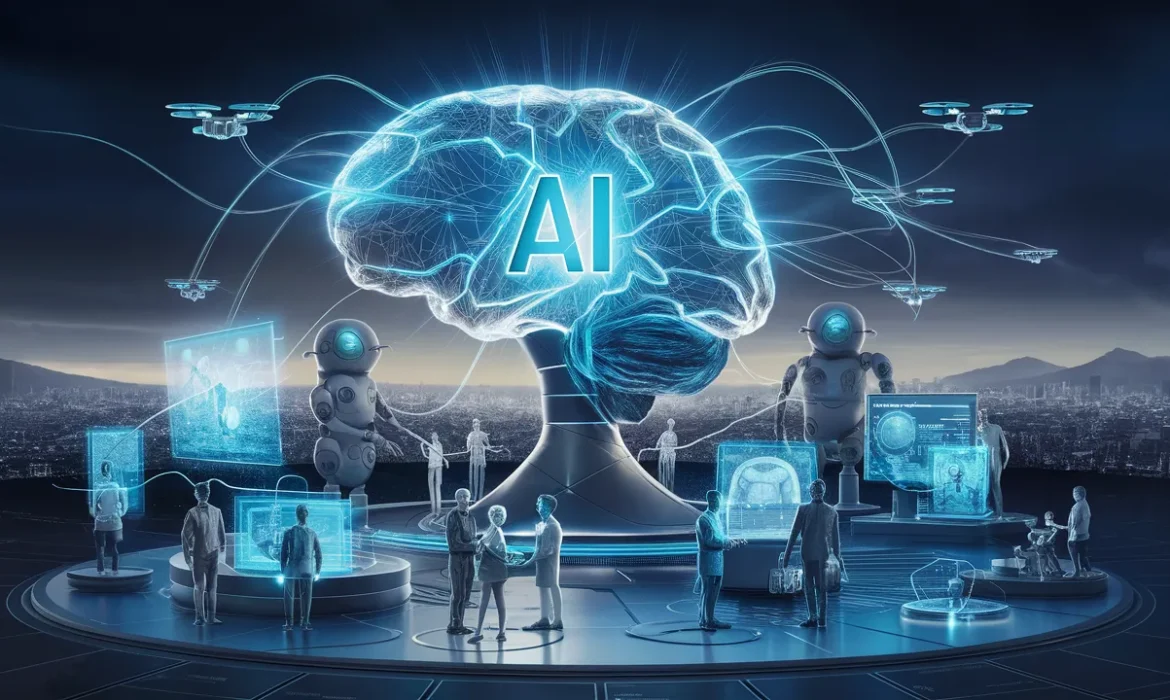
Introduction
Artificial Intelligence (AI) is no longer just a futuristic concept—it’s an integral part of our daily lives and a foundational technology shaping the road ahead. From healthcare improvements to economic growth, AI’s relevance spans nearly every domain. Let’s dive into why AI matters now and what lies ahead.
Present-Day Significance of AI
1. Ubiquity in Daily Life
AI underpins common tools—from Google Maps predicting traffic to virtual assistants like Siri and Alexa. These systems enhance services by learning user behavior and providing personalized experiences Colorado State University Global3DBear.
2. Boosting Efficiency and Accuracy
AI excels at automating repetitive tasks—data entry, fraud detection, and customer support—while offering consistent, error-reduced output and real-time insights IBM101 Blockchains.
3. Transforming Healthcare
AI aids in early disease detection, medical imaging, and drug discovery—like AlphaFold enabling protein structure predictions in hours instead of months Wikipedia+1. AI has even accelerated the search for potential Parkinson’s treatments, slashing both time and cost Wikipedia.
4. Economic and Industrial Growth
AI drives global productivity, opening new industries, optimizing workflows, and contributing significantly to GDP. Estimates suggest a $19 trillion boost by 2030 WikipediaCalifornia Miramar University.
5. Revolutionizing Education
From personalized feedback to AI-driven learning platforms, education is becoming more adaptive, responsive, and accessible Wikipedia+1. Yet, human teachers—valued for creativity and empathy—remain essential in the learning process arXiv.
The Emerging Future of AI
1. Hyper-Personalization and Empathy in Tech
By 2035, AI will evolve into proactive, emotionally intelligent assistants—anticipating needs through multi-modal sensing and offering personalized guidance in health, finance, and wellbeing Tom’s Guide.
2. Transformational Potential
Demis Hassabis of DeepMind forecasts AI’s impact to be “10 times bigger and maybe 10 times faster” than the Industrial Revolution, with breakthroughs in areas like medicine and space exploration—but also warns of risks like misinformation and inequality The Guardian.
3. Global Economic Shift
AI and machine learning are already central to today’s tech revolution, with potential to inject trillions into the global economy and reshape industries entirely The Economic Times.
4. Shaping the Workforce
AI is transforming job roles—enhancing productivity, optimizing tasks, and reducing workload. Rather than replacing workers, it’s reshaping roles for innovation and strategy News.com.au.
5. Preparing for AI-Driven Careers
Industry leaders like Tim Cook stress AI literacy as the new essential career skill—warning that ignoring AI could mean being left behind The Times of India. Meanwhile, Sam Altman envisions AI fueling breakthroughs in space exploration—a potential lucrative frontier by 2035 The Times of India.
6. Call for Cooperative and Ethical Deployment
Experts like Klaus Schwab and Demis Hassabis urge global cooperation and ethical frameworks to ensure AI benefits are equitably shared and aligned with humanity’s larger goals TIMEThe Guardian.
Block Post: “AI—Catalyst of Now, Architect of Tomorrow”
Opening Thoughts
AI isn’t just part of our present—it defines it. From smart assistants to life-changing innovations in healthcare, AI underlies real-world progress every day.
Enhancing Life Today
AI is everywhere: automating routine tasks, delivering personalized services, driving smarter decisions, and bringing precision to critical care.
Looking Ahead: The AI Horizon
Soon, AI will anticipate our needs, manage complex tasks seamlessly, and act as empathetic partners in our lives—transforming how we work, learn, and connect.
Guiding Principles for the Future
The rise of AI must be matched with thoughtful policies, global collaboration, and ethical design to ensure fair, inclusive progress for all.
Invitation to Act
Get curious, get equipped! Understand AI’s capabilities, learn its language, and prepare to harness its potential—for our careers, communities, and collective future.

